Excerpt
The ISCHEMIA trial, a significant international study, explored treatments for Chronic Coronary Syndrome (CCS). It compared Guideline Directed Medical Therapy (GDMT)—a combination of medications and lifestyle changes—and interventional procedures like angioplasty and bypass surgery. The trial’s key finding was that for stable heart conditions, GDMT is often as effective as more invasive procedures. This suggests that managing the condition with medication and lifestyle changes could be s niufficient, at least initially. However, the trial also indicated that in certain severe cases, interventional approaches might be more beneficial, highlighting the importance of personalized treatment plans.
Article Outline:
- Introduction
- Understanding Chronic Coronary Syndrome
- The ISCHEMIA Trial: An Overview
- Guideline Directed Medical Therapy (GDMT) Explained
- Interventional Procedures: Angioplasty and Bypass Surgery
- Comparing GDMT and Interventional Procedures
- Key Findings of the ISCHEMIA Trial
- Implications for Patients
- Conclusions and Takeaways
- FAQs for Further Clarity
The Opener Overture (We’re Conducting a Symphony of Ideas, Are You Ready to Listen?)
Hey there! Have you ever wondered what’s the best way to treat heart issues like Chronic Coronary Syndrome (CCS)? It’s a question that puzzles many of us perennially.
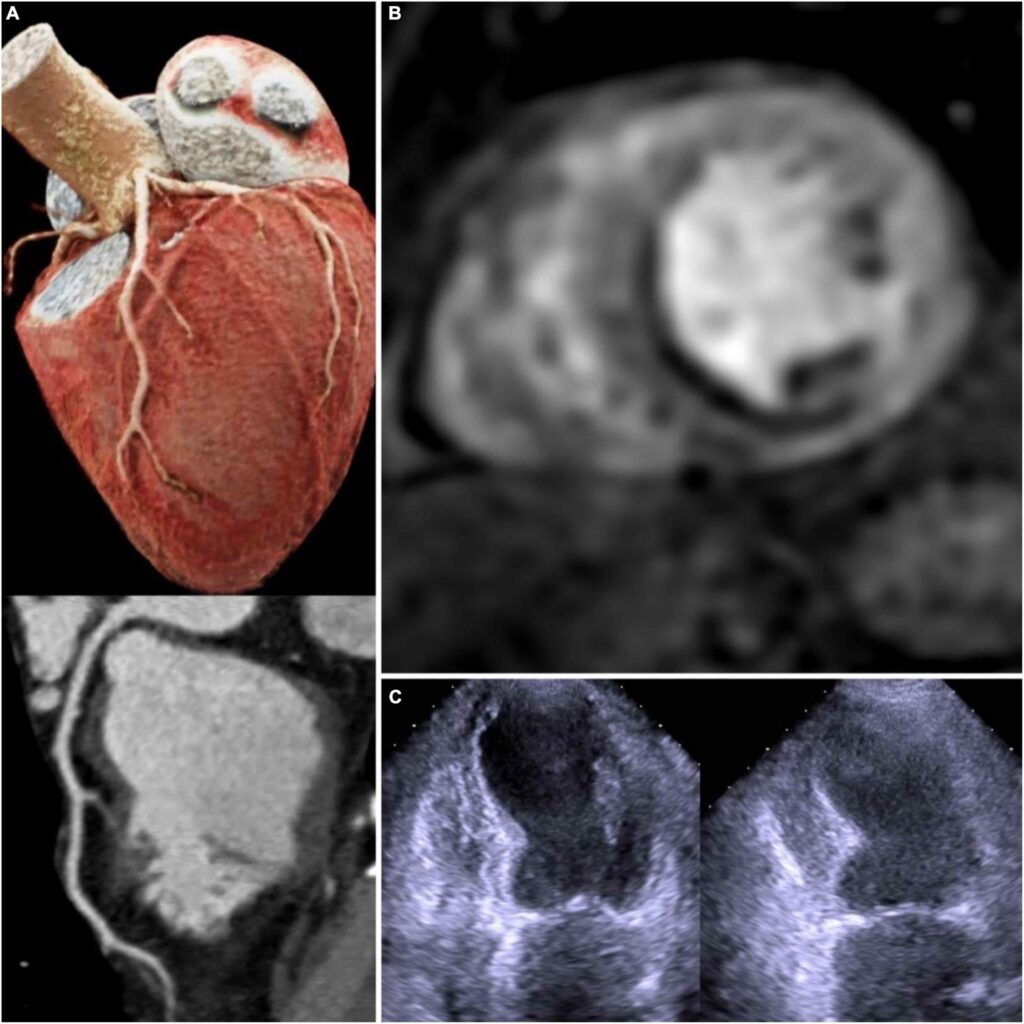
Well, there was this big international study called the ISCHEMIA trial (Read scholarly article) that tried to find some answers. Before we dive into it, let’s set the stage a bit.

When it comes to treating heart problems, doctors usually have a couple of options. They can go for medicines and lifestyle changes, or they can choose more direct methods like fixing the heart’s blocked arteries through procedures such as angioplasty or bypass surgery (Read more…)
Understanding Chronic Coronary Syndrome (CCS)
Chronic coronary syndrome is a fancy term for when your heart’s arteries are narrowed or blocked, making it tough for enough blood to flow to your heart.
Imagine your heart as a car engine and the blood vessels as fuel lines. If these lines are clogged, the engine won’t get enough fuel, right? That’s kind of what happens in chronic coronary syndrome. It can cause symptoms like chest pain, but sometimes it’s sneaky and doesn’t show any symptoms at all.
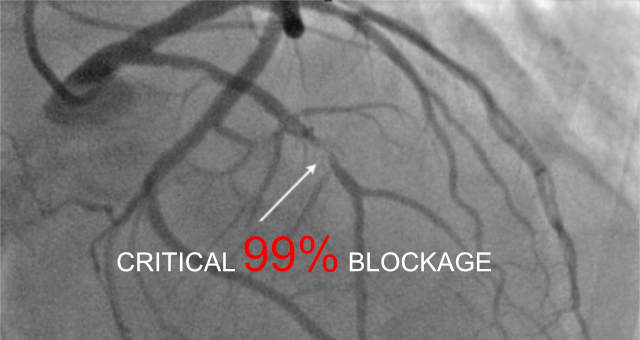
The ISCHEMIA Trial: An Overview
The ISCHEMIA trial (Read scholarly article) was a big deal in the medical world. Why? Because it aimed to answer a burning question: for people with chronic coronary syndrome, is it better to start with medication and lifestyle changes, or should we go straight for the big guns like surgery or angioplasty? This trial involved thousands of patients from all over the globe, making it a pretty solid study.
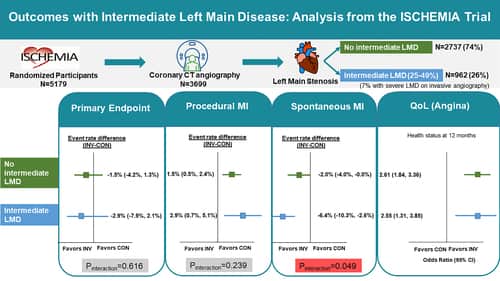
Guideline Directed Medical Therapy (GDMT) Explained
Now, let’s talk about this thing called Guideline Directed Medical Therapy, or GDMT for short.
It sounds a bit technical, but it’s actually pretty straightforward. GDMT is like having a toolkit full of different tools (in this case, medications) and lifestyle changes to keep your heart healthy.

It’s like a personalized plan your doctor makes for you, which can include things like blood pressure and cholesterol meds, along with advice like eating healthier and getting more exercise.
The goal is to manage your heart condition without immediately jumping to surgery.
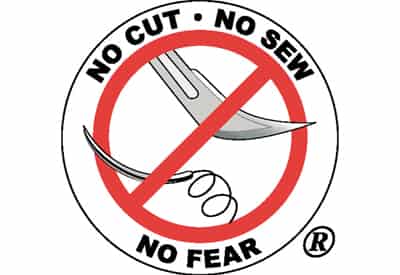
Interventional Procedures: Angioplasty and Bypass Surgery
On the other side of the coin, we have interventional procedures like angioplasty and bypass surgery.
Angioplasty is like unclogging a pipe. A tiny balloon goes into your blood vessel, opens up the blockage, and sometimes a small tube called a stent is left there to keep it open.
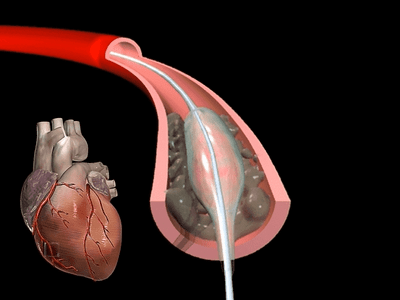
Bypass surgery is a bit more involved. It’s like creating a new route or a ‘bypass’ around the blocked parts of your arteries. Both of these methods are more direct ways to tackle the problem of blocked arteries.
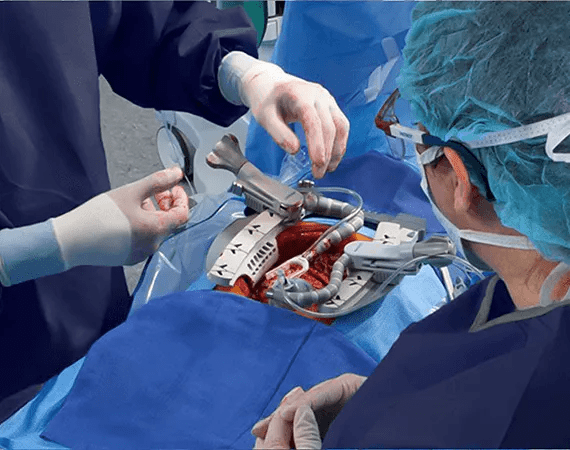
Comparing GDMT and Interventional Procedures
So, we have GDMT on one hand, which is like a conservative, step-by-step medical or non-surgical approach, and on the other hand, we have these more direct interventional procedures. The big question the ISCHEMIA trial wanted to answer was, which one is better to start with?

It’s like asking, if your sink is clogged, do you start with a plunger (GDMT) or call the plumber right away for some serious pipe work (interventional procedures)?
Key Findings of the ISCHEMIA Trial
The ISCHEMIA trial (Read scholarly article) was like a detective story, trying to uncover the best approach:
And then! Surprise! Surprise!!
The study found that for people with stable heart conditions, starting off with GDMT was generally as effective as going straight for procedures like angioplasty or bypass surgery. In fact, the estimated 5-year primary outcomes were slightly better for people on GDMT than those on interventional procedures!
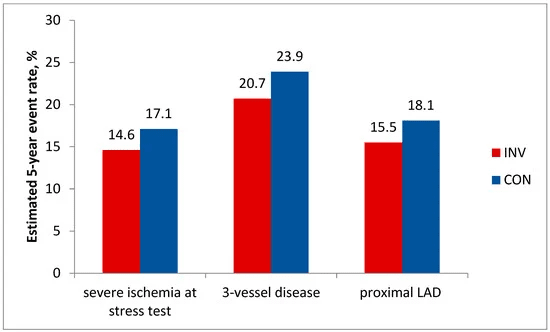
Wow, That’s a Game-Changer!
It was quite a revelation because it suggested that, for many patients, managing the condition with medication and lifestyle changes could be enough, at least initially.
The trial showed that these non-invasive methods could hold their own against the more aggressive treatments.
Finding the Right Balance: Tailoring Treatment to Each Unique Case
However, it wasn’t a one-size-fits-all situation. The trial also pointed out that in certain cases, especially where symptoms were more severe or life-limiting, the interventional approach could be more beneficial. It was about finding the right balance and understanding that each patient’s situation is unique.

Implications for Patients
What does this mean for you or someone you know with a heart condition?

- First off, it’s a bit of good news. It means that in many cases, you might not need to rush into surgery. Starting with a less invasive approach like GDMT could be just as effective.
- But, and this is important, it’s not a one-rule-fits-all.
- The best treatment plan is always the one tailored to your specific condition and needs, as decided by your physician.
The Farewell Fanfare: Let’s Bid adieu with a Bang!
In a nutshell, the ISCHEMIA trial (Read scholarly article) taught us that for chronic coronary syndrome (CCS), less could sometimes be more. Starting with medication and lifestyle changes can often be just as good as jumping into surgery.
But remember, every heart is different, and so is every treatment plan. The key takeaway is to have a thorough discussion with your doctor about what’s best for you.
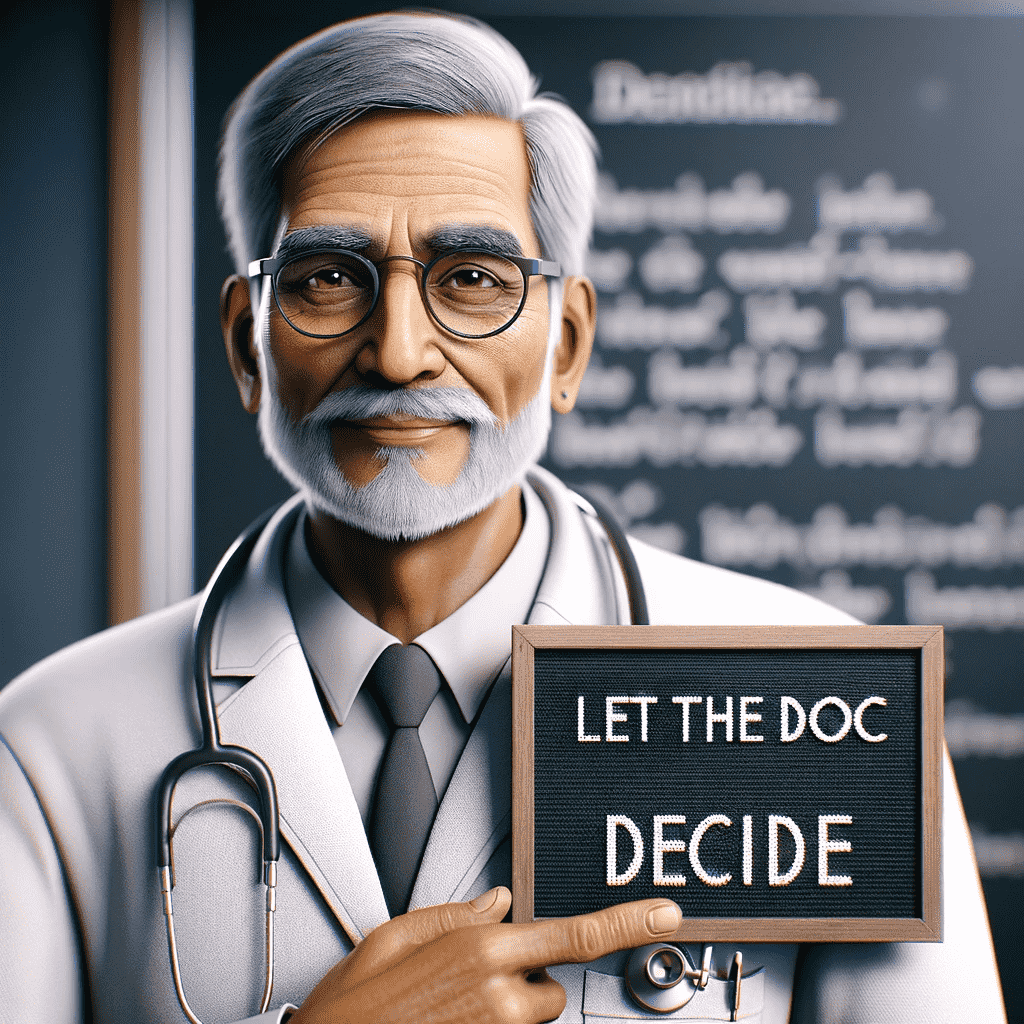
FAQs for Further Clarity
Let’s wrap it up with some common questions you might have:
- Q: Does this mean surgery is never needed?
- A: No, in some cases, surgery might be the best option, especially if symptoms are severe.
- Q: Can lifestyle changes really make a difference?
- A: Absolutely! Things like diet, exercise, and quitting smoking can have a huge impact on heart health.
- Q: Is GDMT a lifelong treatment?
- A: It can be. It’s all about managing the condition over the long term.
Knowledge is Power

And there you have it, a breakdown of the ISCHEMIA trial ( Read Scholarly article) in plain English, for your better understanding and to help your HCP take the right decision for you, based on available data and parameters.
If you are interested further, read more on the subject here.
Remember, when it comes to heart health, knowledge is power, and the best decisions are always made together with your Health Care Provider (HCP).